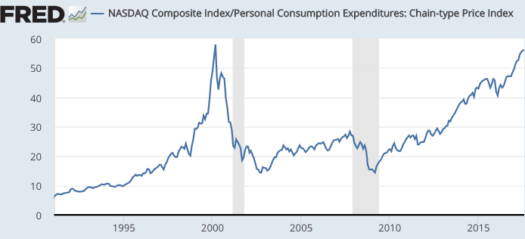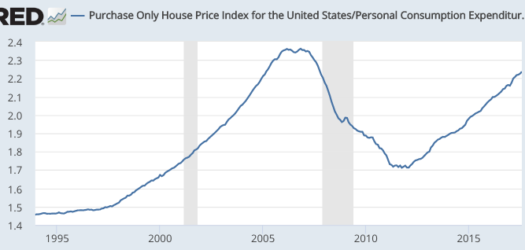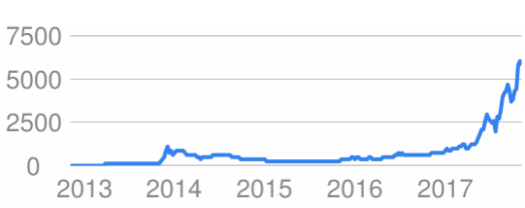I have a piece on Jerome Powell over at the Washington Post.
Trump’s instincts were apparently to reappoint Yellen, but his aides talked him out of it. This is one of those rare cases where he should have gone with his instincts. He replaced a highly qualified woman with a far less qualified man, and is hoping that that the less qualified man does the exact same policy as the highly qualified woman. How does that make sense? (BTW, I think Powell will do fine in the short run.)
Progressives are bashing the new tax plan as being highly regressive, but I’m not buying it:
1. They claim that corporate tax cuts benefit the rich. Actually they benefit everyone. Do you seriously think all these left wing welfare states in Northern Europe would have slashed their corporate income taxes (and in the case of Sweden abolished inheritance taxes) if these moves merely helped the rich? No one knows the tax incidence of the corporate income tax, but I suspect it’s pretty broadly shared.
2. The inheritance tax is almost certainly not going to be repealed. The Dems reinstated it last time the GOP tried to repeal it, and President Sanders/Warren will do the same. I think the GOP knows this deep down, which is one reason the repeal was put off to 2024.
3. The plan keeps the top federal income tax rate at 43.4%! How weird is that? After all the discussion of the need for supply-side tax reforms in the GOP, there is no cut in the top rate. Obama wins! (Just as with Obamacare.) And still the progressives complain.
4. They’ll point to the fact that rich people below the top rate get tax cuts. Some do, some don’t. Our (upper middle class) family’s marginal tax rate will rise from 43.0% to 48.1% under the new tax plan. I’d like Arthur Laffer to explain to me how this will motivate my wife and I to work more hours. No cut in the capital gains rate, which was raised sharply by Obama. How does that motivate me to invest more? I just don’t get it. And ours is not that unusual a family in southern Orange County. There will be lots of families that face higher marginal tax rates, while the MTR on working class families (up to $90,000) falls from 15% to 12%. So no, this is not a highly regressive plan by GOP standards.
[My estimate of the top rate for 2017 is the California tax rate of 6.2% (after federal deduction), plus 33% plus 3.8%). For 2018 it’s 9.3% California income tax (because no deduction), plus 35% plus 3.8%. Someone tell me if this is wrong.]
5. Last month we put a $1000 down payment on a new Tesla. We will now lose the $7000 tax credit. Meanwhile Trump will do just fine:
There are several proposals in this plan that would directly benefit President Trump’s family.
Currently, owners of “pass-through” companies, like LLCs, partnerships, sole proprietorships, and S corporations — the Trump Organization, for example — are taxed as personal income. The Republicans proposal offers a new low tax rate for owners, at 25 percent, a substantial cut from what is typically taxed at 36.9 percent.
The Trump Organization is a large pass-through; it owns golf courses and hotels and pulls in about $9.5 billion in annual revenue. But because it is exempt from the corporate income tax, and its profits are instead taxed upon distribution to shareholders, this new low pass-through rate is a huge win for the Trump family — and the many other businesspeople who structure their companies like this. . . .
Another provision in this bill would also directly benefit Trump’s family. While most companies would have a new limit on interest deductions — capped at 30 percent of earnings before interest and taxes — real estate firms and small businesses would be exempt.
Become president to cut your taxes.
One of my biggest disappointments is that they did not equalize the treatment of debt and equity financed investments. Interest can still be deducted, but not dividends. Also, they did not eliminate the marriage penalty, which is a disgrace.
However . . . the tax proposal contains lots of real reform, more than I expected. If it passes as is (a big if) it would make our tax system far simpler for most people. Most people would simply take the standard deduction. The truly evil AMT would be abolished. I could do my taxes again! Investments are expensed; no complicated depreciation schedules. These are amazingly good reforms. Best of all, the deductions for mortgage interest and state and local taxes would be so weakened that they could easily be eliminated in a future reform. There would be little left to protect. That makes me think this is too good to be true, and the reform parts of the plan won’t go through. I hope I’m wrong.
One other thing. Whereas the Dems will bring back the inheritance tax, I don’t think they’d unwind the “tax simplification” reforms. If we can get those through Congress, I think they would stick. Yes, other complications will be added over time, but the biggies are getting rid of itemizing and getting rid of the AMT. We have an insane system (which other countries don’t have) and it has to end at some point. Just end the misery. Please.
PS. People ask about my ideal tax system:
1. No personal or corporate income taxes. No inheritance tax.
2. A VAT where the poor pay nothing (due to a rebate of the VAT times poverty level income.).
3. A steeply progressive payroll tax. People who are self-employed or form corporations to avoid tax have their income treated as wage income. Investments are expensed. Low wage workers get wage subsidies. No universal basic income (except the VAT rebate).
4. A progressive property tax. (The opposite of the current property tax, which has much lower rates on NYC mansions than ordinary homes.)
5. A carbon tax.
This system of multiple taxes raises enough revenue, without requiring the sort of high rates that a single system would require. You don’t want a 50% VAT, tax evasion would be massive.
We can have a consumption tax system that is highly progressive, simple and efficient. So let’s stop bickering and do it.




